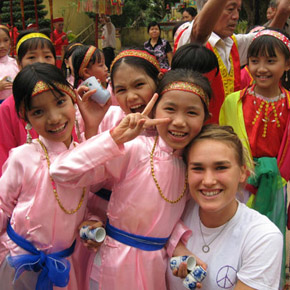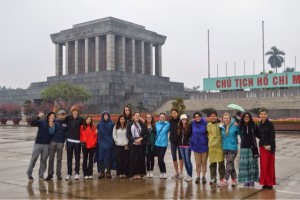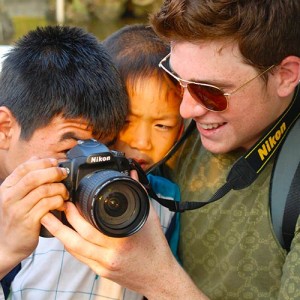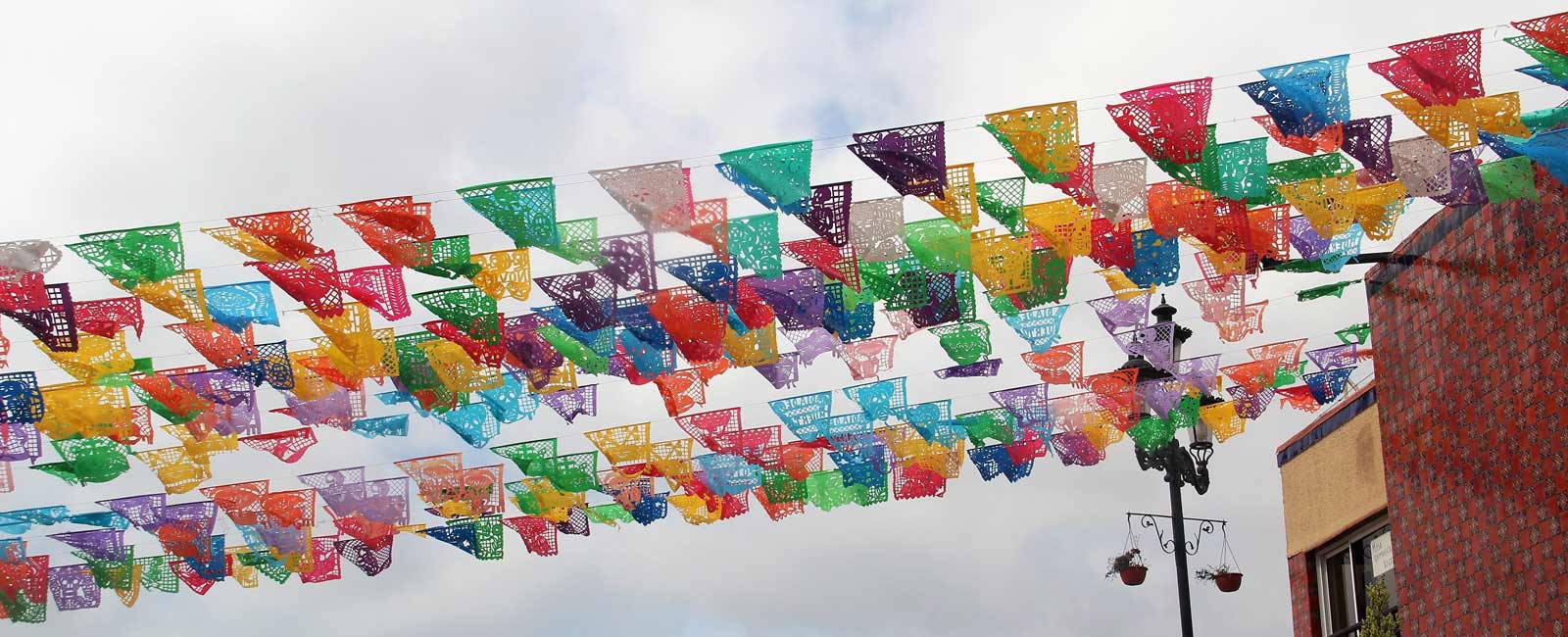
War & Citizenship: Experiential Learning Without Violence
“Take students to Vietnam? Isn’t that a war zone?”
It was 9/11 that radicalized my teaching. Hearing my students embrace war in Afghanistan and Iraq as an answer to our national grief inspired my entrepreneurial spirit. How can we use our grief from violence to inspire peace? How can we teach kids to generate shared wealth as a means of deterring terrorism and increasing global stability? I recognized only one cure in the long-investment-cycle of education: radical empathy through experiential learning.
“What if we built a socially-conscious education abroad program in countries healing from conflict?” We launched Peace Works in 2005, a perfect time marking the 30-year anniversary of the “Fall” (or reunification) of Saigon. With American troops stationed in Afghanistan and Iraq, I asked my students to reflect on the lessons of the Vietnam War. What have we learned from our military adventures in Southeast Asia? How can we honor our nations’ fallen, support our soldiers and — more broadly– invite students to innovate fresh systems of global peace and security without military force?
 Comparisons between the wars in Vietnam and Iraq/Afghanistan abound: in each, the U.S. invaded autonomous nations upon questionable pretexts (“weapons of mass destruction”/Gulf of Tonkin incident). In both, we engaged in guerrilla wars for the “hearts and minds” of foreign people who viewed us not as liberators, but as invaders. As with Vietnam, the impossibility of distinguishing civilian from enemy has caused severe emotional distress to U.S. soldiers in combat, dubious metrics of “body counts,” immeasurable agony in millions of casualties. Weapons and theaters of war have changed since Vietnam; the suffering of our troops, the aggressive pursuit of unknown enemies with questionable tactics of violence have not.
Comparisons between the wars in Vietnam and Iraq/Afghanistan abound: in each, the U.S. invaded autonomous nations upon questionable pretexts (“weapons of mass destruction”/Gulf of Tonkin incident). In both, we engaged in guerrilla wars for the “hearts and minds” of foreign people who viewed us not as liberators, but as invaders. As with Vietnam, the impossibility of distinguishing civilian from enemy has caused severe emotional distress to U.S. soldiers in combat, dubious metrics of “body counts,” immeasurable agony in millions of casualties. Weapons and theaters of war have changed since Vietnam; the suffering of our troops, the aggressive pursuit of unknown enemies with questionable tactics of violence have not.
After 9/11, too many of my students attempted to make sense of invading Afghanistan by repeating simplistic justifications seemingly recycled from the Vietnam era: “I’d rather fight them there than here.” “Freedom isn’t free.” “We don’t negotiate with terrorists”
 After our first trip to Vietnam – meeting with survivors, exploring iconic sites, innovating ideas to benefit children living with the legacy of chemical warfare, and experiencing the beautiful culture – my students changed for the better. Complex understanding replaced simplistic slogans. Creative problem-solving, entrepreneurial solutions, and citizen engagement replaced nationalistic war jingoism. Now in 2016, we’ve brought nearly 1,000 kids abroad.
After our first trip to Vietnam – meeting with survivors, exploring iconic sites, innovating ideas to benefit children living with the legacy of chemical warfare, and experiencing the beautiful culture – my students changed for the better. Complex understanding replaced simplistic slogans. Creative problem-solving, entrepreneurial solutions, and citizen engagement replaced nationalistic war jingoism. Now in 2016, we’ve brought nearly 1,000 kids abroad.
How do we transcend the repetition of history’s mistakes? It is a practice that begins with radical
empathy mapping: for soldiers, policy-makers, investors, civilians, and the oppressed. It is a process which invites design-thinking. We endeavor to understand where our common humanity unites us. The challenges and goals we share: security, prosperity, justice.
It’s cliché, but true: human civilization is doomed to repeat history’s mistakes should we fail to engage the next generation of creative thinkers, now. Students can learn lessons of war
without fighting one themselves. The goal is to connect: introduce students to survivor narratives and veteran’s stories. Use the Business Model Canvas and Lean Launch Pad methodology to understand human problems that cause war and brainstorm solutions which restore peace. Invite the world into your school, and take your classroom into the world. Merge  your classroom curriculum to dynamic travel itineraries with innovative projects fostering mutual prosperity.
your classroom curriculum to dynamic travel itineraries with innovative projects fostering mutual prosperity.
Rather than avoiding the tough topic of war, I applaud teachers who embrace the teachable landscape of painful anniversaries: Memorial Day, Veteran’s Day, Kristallnacht, Hiroshima/Nagasaki, Pearl Harbor Day, and 9/11. We must use these moments to harness our students’ natural compassion, we must inspire their creative engagement to innovate solutions, generate entrepreneurial ideas for long-term stability in a global economy. Because, countries united by people in mutually-prosperous economies don’t bomb one another.
You’re invited to download a free lesson plan from our Vietnam War – Unit V curriculum library. Use these resources to engage your creative thinkers and build a foundation of understanding and empathy.
